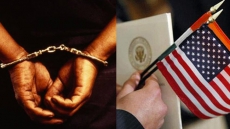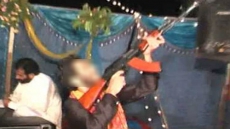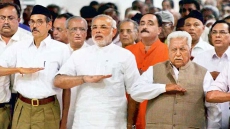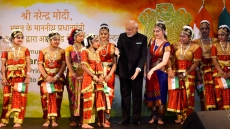A fresh Bill to make the practice of triple talaq among Muslims a penal offence was introduced in the Lok Sabha on Monday to replace an ordinance issued in September. Under the proposed law, giving instant triple talaq will be illegal and void and will attract a jail term of three years for the husband.
The Muslim Women (Protection of Rights on Marriage) Bill, 2018 would supercede an earlier Bill passed in the Lok Sabha and pending in the Rajya Sabha.
An earlier Bill was approved by the Lower House. But amid opposition by some parties in the Upper House, the government had cleared some amendments, including introduction of a provision of bail, to make it more palatable.
But as the Bill continued to face resistance in the Rajya Sabha, the government issued an ordinance in September, incorporating amendments.
An ordinance has a life of six months. But from the day a session begins, the ordinance has to be replaced by a bill which should be passed by Parliament within 42 days (six weeks), else it lapses.
The government is at liberty to re-promulgate the ordinance if the Bill fails to get through Parliament.
Introducing the Bill, Law Minister Ravi Shankar Prasad said despite the Supreme Court striking down the practice of talaq-e-biddat (instant triple talaq) as unconstitutional, men were divorcing their wives on flimsy grounds and even via WhatsApp.
Congress leader Shashi Tharoor opposed the introduction of the bill, saying divorce cannot be made a penal offence and its provisions were against basic principles of the Constitution. Stating that the bill is “misconceived”, Tharoor said it seeks to create class-specific action based on religion. The Congress leader also said that he does not believe that Parliament is competent to enact such a law.
In response, Prasad said the bill has been brought after due deliberations and the member’s objections were baseless. Prasad said “improvements” have been made in the bill and the law was essential to help Muslim women facing the problem of instant triple talaq.
While the proposed law makes it a “non-bailable” offence, an accused can approach a magistrate even before the trial to seek bail. In a non-bailable offence, bail cannot be granted by police at the police station.
A provision has been added to allow the magistrate to grant bail “after hearing the wife”.
The magistrate would ensure that bail is granted only after the husband agrees to grant compensation to the wife as provided in the bill. The quantum of compensation will be decided by the magistrate, as per the bill.
The police would lodge an FIR only if approached by the victim (wife), her blood relations or people who become her relatives by virtue of marriage. Neighbours and others cannot lodge a complaint under the proposed law.
The offence of instant triple talaq will be “compoundable”. Now, a magistrate can use his powers to settle the dispute between a husband and his wife. This will happen only when the wife approaches the court.
Under a compoundable offence, both parties have the liberty of withdrawing the case.
The proposed law would only be applicable on instant triple talaq or ‘talaq-e-biddat’ and it would give power to the victim to approach a magistrate seeking “subsistence allowance” for herself and minor children. A woman can also seek the custody of her minor children from the magistrate who will take a final call on the issue.
“The legislation would help in ensuring the larger constitutional goals of gender justice and gender equality of married Muslim women and help subserve their fundamental rights of non-discrimination and empowerment,” as the per new bill’s Statement of Objects and Reasons.
Citing details of instant triple talaq cases, the government last week informed the Lok Sabha that until now 430 incidents of triple talaq have come to the notice of the government through the media.
Of these, 229 were reported before the Supreme Court judgement while another 201 came to the notice after the ruling. These cases were reported between the period of January 2017 and September 13, 2018.




